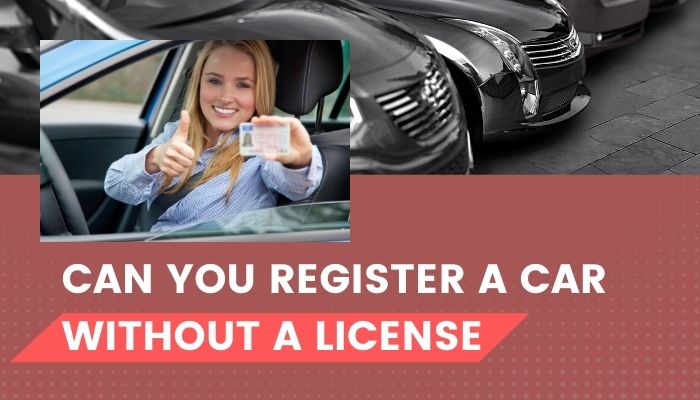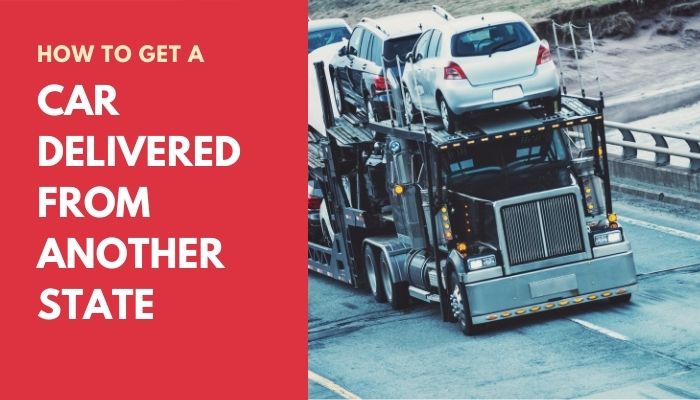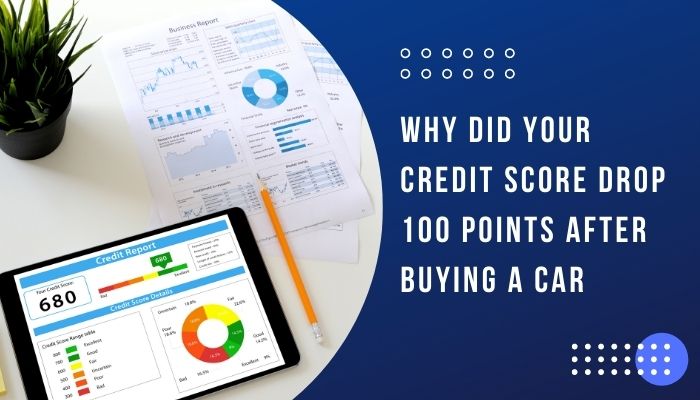How to Buy a Car at Auction Without a Dealer License
Buying a car at an auction is one of the best ways to get a cheaper vehicle on the cheap. You can get a salvage, flood, or used car in near-perfect condition, requiring only minimal repairs. Whether you need an SUV, camper, Van, RV, or motorcycle, the auction is the go-to place if you hope to get good vehicles at less high prices. The problem is that state laws in the united states do not allow auctions to sell directly to individuals like you. Dealer car auctions exquisitely sell to dealers with dealer licenses. Therefore, you have to ask a dealer to negotiate the price of the vehicle on your behalf.
However, you might not get the opportunity to ask a dealer to negotiate on your behalf. Even if you do, the dealership will expect you to pay them for negotiating the vehicle’s price on your behalf. Paying a dealer can significantly raise the cost of the car, making you spend much more than the auction value of the vehicle. So, you have to find a way to buy the car without going through a dealer. That means you should learn how to buy a car at an auction without a dealer license. This article describes all the steps you should take to purchase a vehicle at a dealers’ auction. Keep reading for more information.
How to Buy a Car at Auction Without a Dealer License
To reiterate, you don’t need a license to buy a car from an auction if you approach it the right way. The following are some of the ways through which you can get the vehicle you want without necessarily having a dealer’s license:
1. Negotiating for a One-Time License
Since dealers only auctions wouldn’t let you buy a car from them, attending the auction without a license does no harm. The dealer may ask you to pay a small fee to a one-time license meant for that specific auction. Sometimes, you might have to pay an extra charge to access the auction.
Once inside, you can get a good used car at anything between $250 and $1,000. The fee you pay will cover the dealer’s operation costs, which could start anywhere from $1,000. Remember, the dealer has to pay for vehicle checks, maintenance, insurance, and license renewal. So, they have to charge you to cover their overheads.
2. Having a Friend Help You
Do you have a friend who intends to attend the auction? If “yes” you should ask them to bid on your behalf. Since your friend is already licensed, bidding for an additional vehicle will not cost them more. And, of course, a friend won’t be charging you for the service, helping you save a lot of money.
Do not fret if you have no friends in the car industry or are unaware of someone who regularly goes to the car auction. You can meet like-minded individuals by participating in the dealer community. Apart from learning more about the industry, you will find a way to become a dealer yourself. Attend auctions if they’re open to the public and join discussions in online forums. With that, you will have prior information to an auction before it happens.
3. Bid on No-License-Required Auctions
Several auction dealers allow the participation of unlicensed public bidders like you. In that case, you won’t need a license to attend an auction arranged by such a dealership. However, the dealership may limit the number of vehicles you can bid. Your bid could also restrict the vehicle’s make and model.
A good example is Copart, an online platform where you can bid without a license. Here, there are no restrictions on the makes and number of vehicles you can bid. However, some states might require you to have a business license when buying cars in private auctions based on the title type.
4. Ask for Help from an Auto Broker
Auto brokers are experts that represent buyers at an auction. A broker can pick and bid on a suitable vehicle on your behalf. You can find an auto broker by doing a simple Google search. That will lead you to the broker’s website, where you can get information about them. Check out their payment methods and compare terms. Once you have picked a suitable broker, ask them to represent you at the car auction.
Auto brokers are restricted to bid only in certain states. So, be sure to pick one allowed to bid in your state. An auto broker will issue you with a unique number after registration. When you go to dealers only auctions, you can use the number together with the broker’s name. Still, there are several Coprat affiliated autos, so it helps to check if the broker has a Copart membership ID.
5. Enroll with an Online Auction
If you want to know how to buy a car at an auction without a dealer license, then you should enroll with an online auction. Going online is much better than physically looking for a suitable dealer auction. Most online car auctions are open to public members with discounts comparable to those from dealer auctions. Some of the most prominent online auctions include the following:
- Auto Auction Mall
- Capital Auto Auction
- Copart
- IAAI
You’ll compete with experienced, licensed dealers and other public buyers who have signed up for the auction services on these platforms. Some sites may only allow access to private online auctions if you’re a premium member. However, it works out faster than acquiring a dealer license or working through a broker.
How to Apply for a Dealer’s License
If you want to bid in dealer auctions, you should take steps and acquire a dealer license. You can get the permit without selling a certain number of cars or being an actual dealer. Even though it might take a while before you get a dealer’s license, having it makes it easier for you to bid at auctions. The following are the steps you must take to apply for and get a dealer’s license:
Step 1: Visit Your State’s DMV Website
As a first step, visit your state’s Department of Motor Vehicles (DMV) website and read the rules and regulations you need to observe. Every state has its rules and regulations, so you have to watch what applies in your situation.
Step 2: Make an Online Application
In most states, you’ll have to apply with answers to questions on personal and business information. The DMV might require you to pay a small fee, anything from $50.
Step 3: Submit Business-Related Documents
The DMV may require you to provide copies of your employer identification, tax identification, business license, and a detailed business plan as part of the application. Part of these documents is necessary for proportional processing taxes.
Step 4: Submit Proof of Insurance
Most states require proof of insurance for your business and a fingerprint or inventory card for background checks. Additionally, you’ll have to submit a signed lease or a sale agreement for your business premises.
Step 5: In-Person Visit by a State Representative
If you’re starting a car dealership business, a state representative may request to visit your premises to do a thorough inspection. The official would want to verify that you’ve met requirements such as signage, operational service bays, equipment, display space, and square footage. If you’re a private buyer, then that wouldn’t be necessary.
Step 6: Getting a Surety Bond
Your local DMV may issue dealer licenses on the condition that you have a requisite surety bond, which is an insurance policy designed to protect consumers when your business commits fraud or fails to meet its financial obligations. Typically, the value of the bond ranges from $20,000 to $50,000. It depends on the types and number of vehicles you expect to sell. You need to pay a fraction of the total amount before the state processes your application.
Step 7: Pay the Required Fees
Different states require applicants for dealer’s licenses to pay additional fees, including licensing costs, dealer plate, auto broker fees, or New Motor Vehicle Board Fees. Some states may require you to undergo a dealer training course and prove you have a given minimum credit score even as you pay these fees.
Types of Car Auctions
There are different types of car auctions, which you may approach to bid for a deal, including the following:
- Car Dealer Auctions: This type of car auction is for individuals or organizations with a state-issued dealer license. To purchase a car from these dealerships, you need a permit. However, it takes a long to get a dealer license. As we have already seen, the requirements for licensing differ from state to state. The auctions often limit the number of cars you can buy and sell annually.
- Public Car Auctions: Public car auctions and different from dealer car auctions since the former is open to the public and the latter is not. You don’t need a license to participate in bidding at these auctions. They may be sellers such as flood junkers, wholesale car lots, bank repossessed vehicles, and bottom-of-the-barrel trade-ins. Since the quality of cars varies from one auction to another, be sure to do your homework.
- Government or Police Auctions: These auctions may involve the sale of state, county, and city vehicles such as utility trucks, police cruisers, buses, and so on. They also sell cars that have been impounded and confiscated due to crime and traffic violations. Since the vehicles are formally government-owned, they are likely to be in better condition than most other auctions.
Things to Consider Before Buying a Car at Auction
You Could Buy Junk
Did you know that vehicles that have been totaled, repossessed, leased, or traded in are likely to end up at a car auction? That’s the vehicle you’re most likely to buy when you go bidding at the auction. However, not every car on the lot is junk. It means that you should avoid buying lemons instead of good vehicles.
Be Ready to Pay Cash
Once your bid wins, the auctioneers will require you to pay cash or have an approved loan. If you’re paying with a loan from your bank, then be ready to pay the requisite deposit. You can ask if the auctioneer accepts any credit cards for that purpose. Remember, you’ll need to pay registration fees, taxes, and title fees. If you’re paying for the car through a loan, bring insurance from the lending agency.
Avoid Falling for Appearances
Dealers usually spruce up cars before presenting them to the auction. Therefore, a vehicle’s appearance doesn’t necessarily represent its true quality. That’s why you must always check the car’s history and whether there’s a match in the VIN on the dashboard, door, and other sections of the vehicle.
There Could be Several Hidden Problems
Dealers use all kinds of tricks to hide the faults in an engine. Even if you take the vehicle on a test drive, you might not discover some of these tricks. You can find these tricks by bringing along a mechanic friend. Also, public auctions have no guarantees or warranties, so once you drive away with the vehicle, you have sealed your fate.
You Can Get the Best Cars from Banks
Banks usually repossess cars whose owners have defaulted loan repayments before going up for sale. The banks only want to get a reasonable price on the vehicle to recover the loan amount. These vehicles usually have the best possible quality among cars in an auction. You should only check that the owner did some excellent work maintaining it.
Always Set a Bid Limit
Before the bidding starts, set a limit to how much you’re willing to pay and stick to it. Make sure you’re sober enough to hold your ground. If your mind gets clouded, you might end up paying a price that’s way too high than you should.
Conclusion
Now you know how to buy a car at an auction without a dealer license. What are you going to do about it? Instead of going to a dealership, you can visit an auction and get high-quality vehicles at an affordable price. However, it would help if you were careful not to fall victim to fraud by purchasing a car that is not serviceable by any measure. If you get a good-enough vehicle, do some minor repairs before you start driving it.
Frequently Asked Questions (FAQ)
Can I still buy a car at an auction if I am not licensed?
Yes. You can still buy a car at an auction if you’re not a licensed dealer. In that case, you have unfettered access to public auctions. This article has addressed how to buy a car at an auction without a dealer license for other options.
What do I need to register with a car auction?
You can register with a car auction if you have the requisite documents, including a state ID, driver’s license, and a $300 deposit. If you buy a car, the deposit will pay for the vehicle. Otherwise, the auctioneers will refund you the same amount.
Are the cars at auctions in good condition?
The condition of the cars at auctions may vary depending on why they ended up there. If the vehicle is totaled, it may mean it is almost junk. So, it would help if you were sure to make a detailed inspection of the car to be sure it can serve you.
Can I inspect vehicles at an auction?
Yes. If you come early enough, the dealership may allow you to inspect the vehicles. Be sure to check out the body, engine, and other accessories. You could ask a qualified vehicle inspector to accompany you to the auction.




